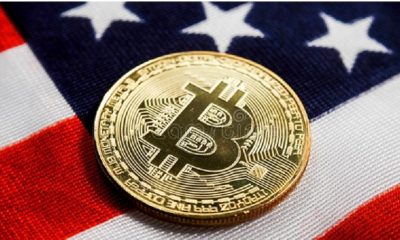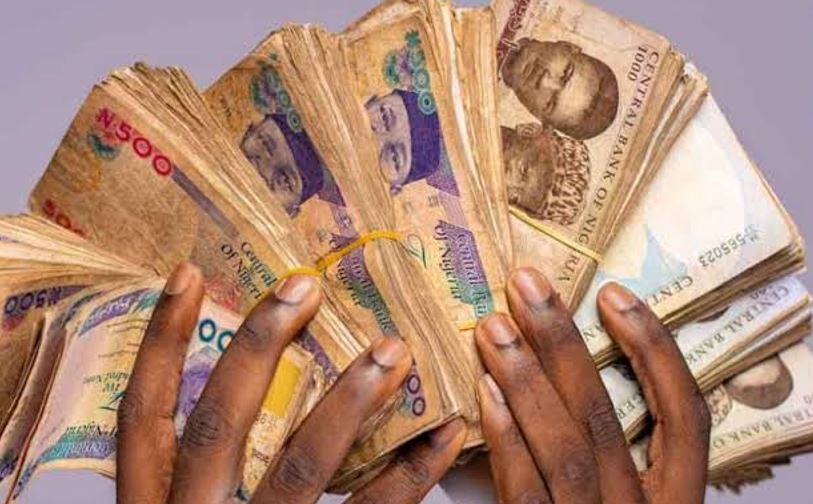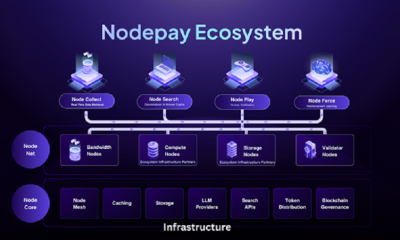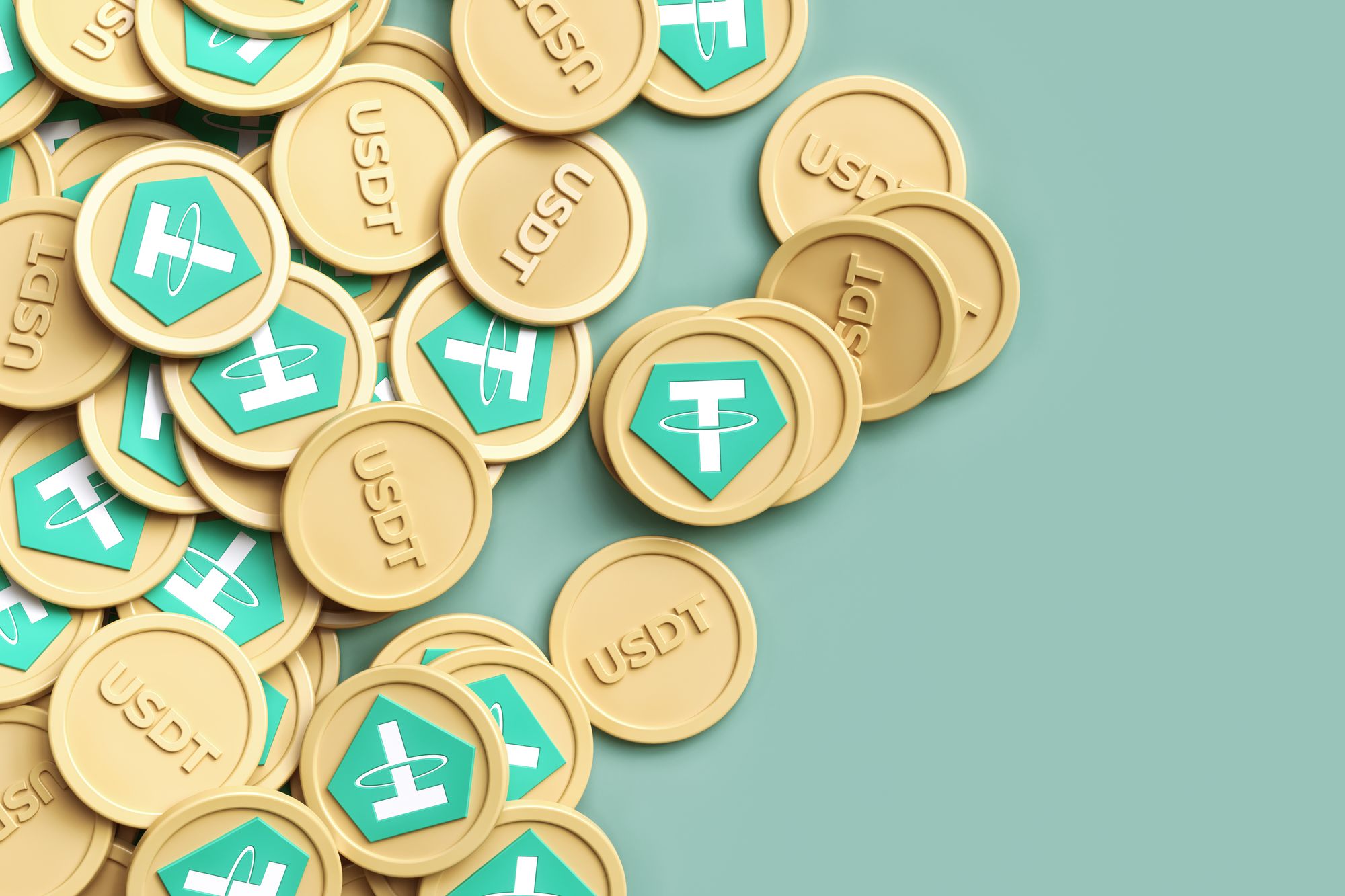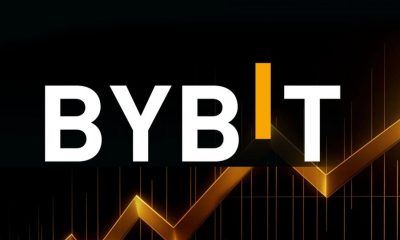Economy
Understanding Slippage in Crypto Exchanges and How Swapzone Helps Reduce It
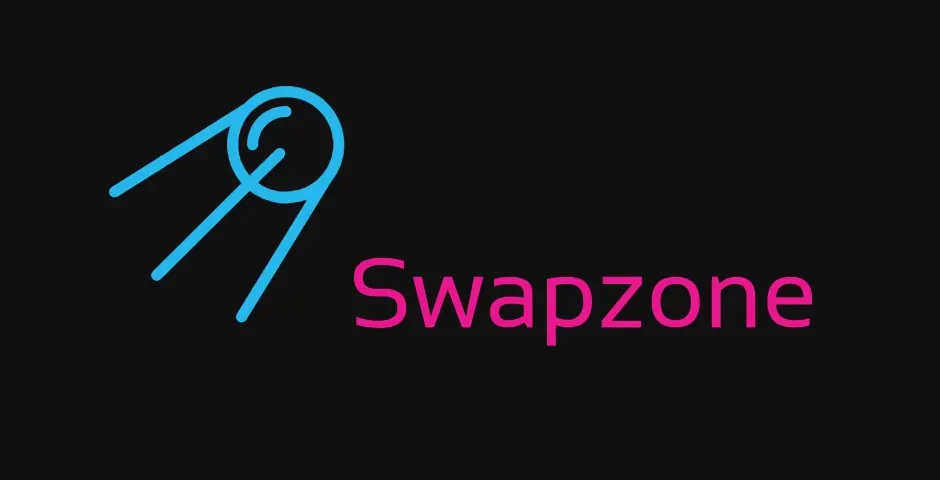
Introduction
Slippage is a common concern for crypto traders who use the best crypto exchange, especially during periods of high market volatility. It can lead to unexpected price changes between the time a trade is initiated and when it is executed. Understanding slippage and how to minimize it is crucial for optimizing trading outcomes. In this article, we’ll explore what slippage is, its causes, and how Swapzone’s advanced aggregation system helps reduce it for a smoother trading experience and crypto swap.
What Is Slippage in Crypto Trading?
Slippage refers to the difference between the expected price of a cryptocurrency trade and the actual price at which the trade is executed. It typically occurs when market conditions change rapidly, leading to discrepancies in pricing. Slippage can be either positive or negative:
- Positive Slippage: The executed price is better than the expected price, resulting in more favorable trade outcomes.
- Negative Slippage: The executed price is worse than the expected price, leading to potential financial loss.
Causes of Slippage in Crypto Exchanges
Several factors contribute to slippage in cryptocurrency markets:
1. Market Volatility
Crypto markets are known for their rapid price fluctuations. High volatility increases the likelihood that the price will change between the time a trade is placed and when it is executed.
2. Liquidity Levels
Liquidity refers to how easily an asset can be bought or sold without affecting its price. Lower liquidity, especially for less common tokens, can cause larger slippage due to fewer matching orders in the order book.
3. Large Trade Sizes
Executing large orders may consume multiple price levels in the order book, resulting in slippage. This is particularly common on smaller exchanges with limited order book depth.
4. Execution Speed
Delays in trade execution, whether due to network congestion or slow processing times, can lead to price differences and increased slippage.
How Swapzone Helps Reduce Slippage
Swapzone’s cryptocurrency aggregation model is designed to minimize slippage by leveraging advanced technology and broad market access. Here’s how Swapzone helps users reduce slippage:
1. Real-Time Rate Comparison
Swapzone continuously collects real-time data from over 20 exchange partners, allowing users to access the most up-to-date rates. This minimizes the risk of price discrepancies during trade execution.
2. Access to Multiple Liquidity Pools
By aggregating offers from both centralized and decentralized exchanges, Swapzone taps into a vast network of liquidity. This reduces the chances of encountering slippage, even for large trades.
3. Smart Order Routing
Swapzone’s algorithm automatically identifies the best route for each trade, optimizing execution across multiple providers. This ensures users receive the most favorable rates with minimal price impact.
4. Transparent Pricing
Swapzone displays all fees and costs upfront, allowing users to make informed decisions. Clear and transparent pricing reduces uncertainty and the risk of hidden slippage.
5. Customizable Options
Users can choose between the best rate or fastest execution options. This flexibility allows traders to prioritize speed or price efficiency based on their needs, further minimizing slippage risks.
Tips to Minimize Slippage When Using Swapzone
In addition to Swapzone’s advanced technology, users can take additional steps to reduce slippage:
- Monitor Market Conditions: Trade during periods of lower volatility to avoid sudden price movements.
- Split Large Trades: Divide large transactions into smaller orders to prevent significant price impact.
- Use the Best Rate Option: Select the best rate offer on Swapzone to secure the most competitive pricing.
Conclusion
Slippage is a critical factor to consider when trading cryptocurrencies, but with the right tools, it can be effectively minimized. Swapzone’s real-time data collection, smart order routing, and access to multiple liquidity sources provide a reliable solution for reducing slippage. By leveraging Swapzone’s capabilities and applying best practices, users can execute more accurate and cost-effective crypto swaps with confidence.
Economy
Champion Breweries Concludes Bullet Brand Portfolio Acquisition

By Aduragbemi Omiyale
The acquisition of the Bullet brand portfolio from Sun Mark has been completed by Champion Breweries Plc, a statement from the company confirms.
This marks a transformative milestone in the organisation’s strategic expansion into a diversified, pan-African beverage platform.
With this development, Champion Breweries now owns the Bullet brand assets, trademarks, formulations, and commercial rights globally through an asset carve-out structure.
The assets are held in a newly incorporated entity in the Netherlands, in which Champion Breweries holds a majority interest, while Vinar N.V., the majority shareholder of Sun Mark, retains a minority stake.
Bullet products are currently distributed in 14 African markets, positioning Champion Breweries to scale beyond Nigeria in the high-growth ready-to-drink (RTD) alcoholic and energy drink segments.
This expansion significantly broadens the brewer’s addressable market and strengthens its revenue base with an established, profitable portfolio that already enjoys strong brand recognition and consumer loyalty across multiple markets.
“The successful completion of our public equity raises, together with the formal close of the Bullet acquisition, marks a defining moment for Champion Breweries.
“The support we received from both existing shareholders and new investors reflects strong confidence in our long-term strategy to build a diversified, high-growth beverage platform with pan-African scale.
“Our focus now is on disciplined execution, integration, and delivering sustained value across markets,” the chairman of Champion Breweries, Mr Imo-Abasi Jacob, stated.
Through this transaction, Champion Breweries is expected to achieve enhanced foreign exchange earnings, expanded distribution leverage across African markets, integrated supply chain efficiencies, portfolio diversification into high‑growth consumer beverage categories, and strengthened presence in the RTD and energy drink segments.
The acquisition accelerates Champion Breweries’ transition from a regional brewing business to a multi-category consumer platform with continental reach.
Bullet Black is Nigeria’s leading ready-to-drink alcoholic beverage, while Bullet Blue has built a strong presence in the energy drink category across several African markets.
Economy
M-KOPA Nigeria Plans Expansion to Edo, Others After N231bn Credit Milestone

By Adedapo Adesanya
Emerging market fintech firm, M-KOPA, has announced plans to deepen its reach in Nigeria to the South South and South East regions, starting with Edo this year, after providing N231 billion in credit to over 1 million customers in the country.
The firm released its first Nigeria-focused Impact Report, which showed that Nigeria is M-KOPA’s fastest-growing market and fastest to reach the milestone.
Since its foray into the Nigerian market in 2019, M-KOPA has been working to dismantle barriers to financial inclusion by providing flexible smartphone financing and digital financial tools that align with how people in the informal economy earn and manage their money.
It operates in six states in the country, including Lagos, Ogun, and Oyo, among others.
The report highlights the company’s contribution to income generation, digital inclusion and economic opportunity for Every Day Earners across the country.
The report showed that M-KOPA has enabled 290,000 first-time smartphone users, while 56 per cent of agents accessed their first income opportunity through the platform.
It showed high income and livelihood gains among its users, with about 77 per cent of customers leveraging smartphones or digital loans obtained through the platform to generate income, indicating that access to financed devices is directly supporting micro-entrepreneurial activity and informal sector productivity.
Furthermore, 75 per cent of users report higher earnings since gaining access to M-KOPA’s services, suggesting measurable improvements in personal revenue streams. On the distribution side, 99 per cent of agents disclose increased earnings, reflecting positive spillover effects across the company’s value chain.
In addition, 81 per cent of long-term customers state that their household expenses have improved, pointing to enhanced financial stability and better consumption smoothing over time.
Speaking on the report, Mr Babajide Duroshola, General Manager, M-KOPA Nigeria, said, “Nigeria represents extraordinary potential, and we’re proud that it has become M-KOPA’s fastest-growing market. Our Impact Report shows that when Every Day Earners gain access to the right digital and financial tools, they use them to create stability and long-term progress for their families. This is about access that unlocks opportunity and sustained prosperity.”
On its expansion plans Nigeria-wide, the M-KOPA helmsman said, “Many of the states we are considering are already similar to the ones we are currently in proximity… So, there is proximity and similarity between these states, and that’s what we are going to do, starting with Edo.”
He noted that as M-KOPA Nigeria continues to expand, the focus remains on ensuring more everyday earners gain access to the digital and financial tools they need to build resilient, prosperous futures in Nigeria’s rapidly digitising economy.
Economy
Tinubu Okays Extension of Ban on Raw Shea Nut Export by One Year

By Aduragbemi Omiyale
The ban on the export of raw shea nuts from Nigeria has been extended by one year by President Bola Tinubu.
A statement from the Special Adviser to the President on Information and Strategy, Mr Bayo Onanuga, on Wednesday disclosed that the ban is now till February 25, 2027.
It was emphasised that this decision underscores the administration’s commitment to advancing industrial development, strengthening domestic value addition, and supporting the objectives of the Renewed Hope Agenda.
The ban aims to deepen processing capacity within Nigeria, enhance livelihoods in shea-producing communities, and promote the growth of Nigerian exports anchored on value-added products, the statement noted.
To further these objectives, President Tinubu has authorised the two Ministers of the Federal Ministry of Industry, Trade and Investment, and the Presidential Food Security Coordination Unit (PFSCU), to coordinate the implementation of a unified, evidence-based national framework that aligns industrialisation, trade, and investment priorities across the shea nut value chain.
He also approved the adoption of an export framework established by the Nigerian Commodity Exchange (NCX) and the withdrawal of all waivers allowing the direct export of raw shea nuts.
The President directed that any excess supply of raw shea nuts should be exported exclusively through the NCX framework, in accordance with the approved guidelines.
Additionally, he directed the Federal Ministry of Finance to provide access to a dedicated NESS Support Window to enable the Federal Ministry of Industry, Trade and Investment to pilot a Livelihood Finance Mechanism to strengthen production and processing capacity.
Shea nuts, the oil-rich fruits from the shea tree common in the Savanna belt of Nigeria, are the raw material for shea butter, renowned for its moisturising, anti-inflammatory, and antioxidant properties. The extracted butter is a principal ingredient in cosmetics for skin and hair, as well as in edible cooking oil. The Federal Government encourages processing shea nuts into butter locally, as butter fetches between 10 and 20 times the price of the raw nuts.
The federal government said it remains committed to policies that promote inclusive growth, local manufacturing and position Nigeria as a competitive participant in global agricultural value chains.
-

 Feature/OPED6 years ago
Feature/OPED6 years agoDavos was Different this year
-
Travel/Tourism10 years ago
Lagos Seals Western Lodge Hotel In Ikorodu
-

 Showbiz3 years ago
Showbiz3 years agoEstranged Lover Releases Videos of Empress Njamah Bathing
-

 Banking8 years ago
Banking8 years agoSort Codes of GTBank Branches in Nigeria
-

 Economy3 years ago
Economy3 years agoSubsidy Removal: CNG at N130 Per Litre Cheaper Than Petrol—IPMAN
-

 Banking3 years ago
Banking3 years agoSort Codes of UBA Branches in Nigeria
-

 Banking3 years ago
Banking3 years agoFirst Bank Announces Planned Downtime
-

 Sports3 years ago
Sports3 years agoHighest Paid Nigerian Footballer – How Much Do Nigerian Footballers Earn


